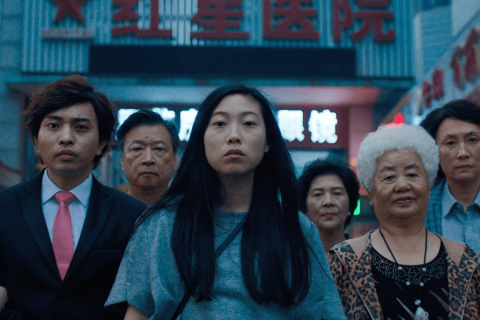
Sure, these films are entertaining, but they also provide gentle onramps for rich spiritual and social justice conversations—with multi-generational appeal. Read the reviews to learn more.
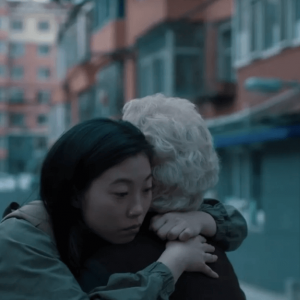
The film challenges Western beliefs about familial and individual responsibility, as well as the often-unrecognized personal sacrifices we make for the ones we love.

I went to the theater alone, feeling small and bereft. At the urging of a friend, I went to see Marcel the Shell With Shoes On. I felt my smallness increase as the theater darkened. Then suddenly, there was Marcel, a one-inch-tall shell, blinking back at me. Marcel is soft-spoken, inquisitive, and wears pink shoes.
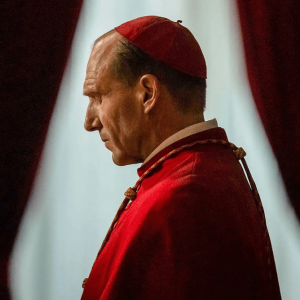
Directed by Oscar-winner Edward Berger (All Quiet on the Western Front), Conclave begins when the pope dies unexpectedly. To elect the next pontiff, the College of Cardinals convenes in the Vatican, entering total seclusion from the outside world until a majority vote can be reached. But if God is working through the cardinals, so too is something darker: ugly hunger for power and bitter ideological divide.
Rian Johnson's lifting up of the least of these is what makes this movie valuable now.
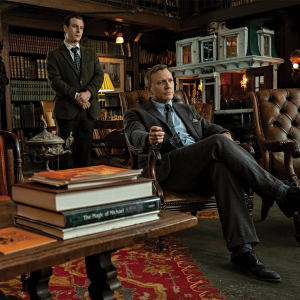
RIAN JOHNSON'S FILM Knives Out wastes no time setting up the murder mystery that powers its plot. In the very first scene, famed mystery writer Harlan Thrombey (Christopher Plummer) is found in the library of his mansion, his throat cut. Harlan’s family is shocked. His Latina caretaker, Marta (Ana de Armas), Harlan’s closest confidant, is devastated. The police think it’s a suicide. Private detective Benoit Blanc (Daniel Craig) thinks otherwise.
The mystery of Harlan’s death may be the plot of Knives Out, but as the story progresses, it’s clear that the film is actually about something else.
Bootstrapping—the idea that one can achieve success purely through hard work and determination—is touted in most areas of public life, from business to education to politics. White Americans particularly love to claim that we’ve risen from tough circumstances while making it harder for less-advantaged populations to do just that.
In Knives Out, the bootstrapping myth is everywhere. Harlan’s children are proud that their dad built a publishing empire. Harlan’s daughter Linda (Jamie Lee Curtis) tells Blanc that she, too, created her own business from the ground up. But, of course, those stories aren’t the whole truth. Linda would be nowhere without the hefty loan she got from her father. Harlan himself may have worked hard for his success, but as a white man, there’s no doubt his path was easier than it would have been for others.
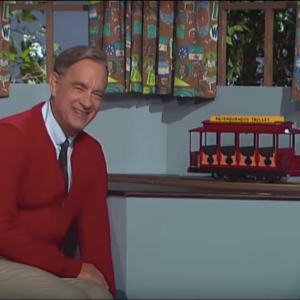
The new film A Beautiful Day in the Neighborhood thankfully avoids giving us a Fred Rogers biopic, one that hits rote beats that show us how Rogers grew into the saintly human we welcomed into our homes. Instead, it provides a kind of parable of the love and forgiveness and empathy that Rogers preached, one in which Rogers himself happens to feature significantly.
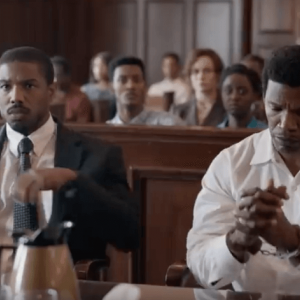
To Kill a Mockingbird and Just Mercy have notable parallels and important divergences: Like Atticus, Stevenson is defending a wrongfully accused black man from a racist community. But this time, there’s no white savior, and Stevenson isn’t going to lose the case.
Terrence Malick's "A Hidden Life" provokes difficult questions, doubt, and belief.
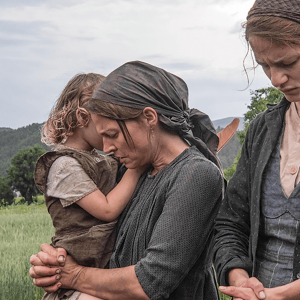
TERRENCE MALICK HAS long been associated with spirituality. The director’s philosophy background, poetic style, and love of nature results in art that urges viewers to engage deeply with the world: Ask difficult questions, doubt, and believe.
But A Hidden Life, Malick’s latest, may be the most faith-oriented film yet from the director of The Tree of Life and The Thin Red Line. Through the story of World War II-era martyr Franz Jägerstätter, Malick explores what it means to wrestle with Christian conscience during rising xenophobia and violence. Jägerstätter (played by August Diehl) was an Austrian farmer executed for refusing to swear loyalty to Hitler. For Malick’s purposes, he becomes an audience surrogate as he encounters his community’s reactions to the Third Reich, and later a Christ figure.
Malick spends significant time establishing the beauty of Jägerstätter’s life before the war. We’re given glimpses of his village and farm, witness romantic moments with his wife, Franziska (Valerie Pachner), and fall in love with them and their home.
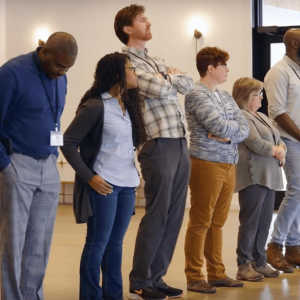
In August 2022, Mennonite minister Rev. Michael Gulker brought together 12 pastors of different denominations from Grand Rapids, Mich., with a unique proposal — to spend a year together exploring their differences with the hope of finding a way beyond them.
In ‛Nomadland’ it's about sharing each other.
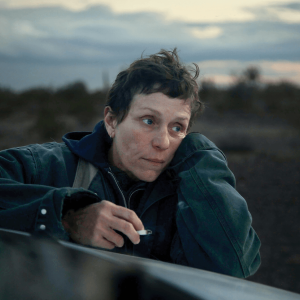
THE LAST CHAPTER of Hebrews in the New Testament begins with a reminder of how to serve God and build a healthy community: “Do not neglect to show hospitality to strangers, for by doing that some have entertained angels without knowing it” (13:2). Biblical hospitality takes many forms, but it consistently involves selfless sharing of space, resources, and—perhaps most importantly—attention. To share part of your life with another person, and allow them to share in return, is to show that they matter.
Nomadland, Chloé Zhao’s contemporary American road film, is full of biblical hospitality. By turning a documentary-style eye on a real community of nomads who otherwise slip through the cracks of society, writer and director Zhao’s film—which won 2021 Golden Globes for best motion picture and best director—provides its actors/subjects with space to be seen, heard, and known.
Like The Rider, Zhao’s previous film, Nomadland combines elements of narrative and documentary filmmaking by crafting a story around the lived experiences of real people. Our guide, Fern (Frances McDormand), leaves her home in Empire, Nev., to live on the road. Fern is part of a subculture of older adults who, left in dire financial straits by the 2008 recession, live in vans as modern-day nomads, picking up gig work across the country. As Fern travels, she makes friends with several fellow nomads (most of them real people playing themselves) who share their stories with her.
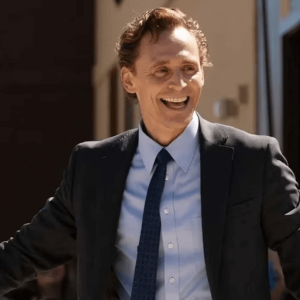
“Inside the soul of this accountant who loves his job and loves his wife and loves his son, is this dancer,” Hiddleston said during a press conference. “And that might be true of anyone you know or anyone you see on the street … Inside that human being is greater breadth and depth and range than we could possibly imagine.”
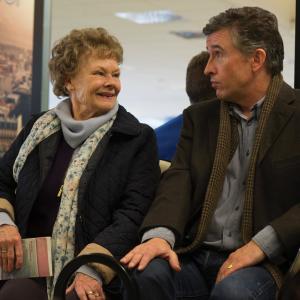
THE BEST CHRISTIAN MOVIE you’ve never seen (even though it was Oscar-nominated for best picture!) turns 10 this year. That movie is Philomena, adapted from The Lost Child of Philomena Lee: A Mother, Her Son and A Fifty-Year Search, by British journalist Martin Sixsmith. The film stars Dame Judi Dench as the titular mother and Steve Coogan as Sixsmith. While the book primarily focuses on Philomena’s son Michael Hess, the film more closely traces the mother’s story. As a pregnant teenager, Philomena was abandoned to a convent of nuns who forced young women to work without pay and sold their children to wealthy Americans looking to adopt.
On her son’s 50th birthday, Philomena weeps, clutching the only pictures she has of him. Despite her efforts, she has never been able to learn his fate. When Sixsmith, a disgraced journalist, learns of Philomena’s plight, he agrees to help her. What began as a distraction from his own troubles soon shifts to captivation. Despite Philomena’s assurances that the sisters of the convent have done their best to care for the women and children in their charge, Sixsmith uncovers a devilish conspiracy of silence.
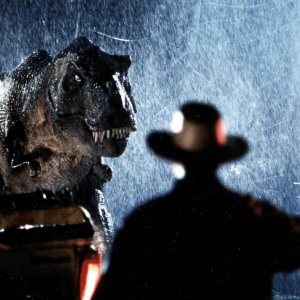
Thirty years after the release of the Steven Spielberg film that brought T. Rex to the silver screen and turned velociraptor into a global superstar, I sat in the theater watching Jurassic Park again. But this time, it wasn’t the giant dinosaurs that captivated me. It was a small, intimate conversation between Hammond and Sattler.

In this world where only the fittest survive, can a robot’s commitment to help without agenda possibly work?
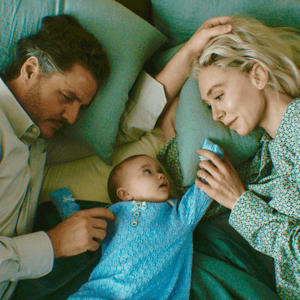
The Fantastic Four: First Steps starts out with a trade proposal of the highest stakes. Galactus, the world-eating villain of Marvel’s latest reboot, will spare the Earth from his insatiable hunger in exchange for one child.
The child on the cosmic bargaining table is Franklin, son of Reed Richards, aka “Mister Fantastic” (a subdued Pedro Pascal) and Sue Storm, aka “The Invisible Woman” (Vanessa Kirby, who really gets to shine as the Fantastic Four’s leader).

Both films are sympathetic to creators, but neither film lets their creations off the hook. Oppenheimer worries aloud how the nuclear power he unleashed will shape the atomic age. Barbie faces a lunch table of schoolgirls who tell her exactly how the Barbie beauty standards made them feel un-feminine. But both films ultimately move beyond the myth of the single creator and focus on the forces that shape that creation’s ongoing impact on the larger world.

Past Lives is a poignant exploration of both the burden and grace available to us as creatures of free will who are bound to the finality of our choices.
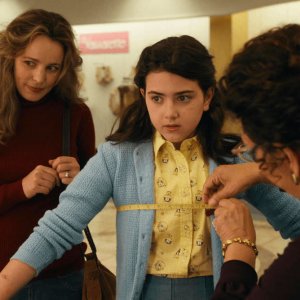
Children are already exploring sexuality and religious skepticism in complex and important ways — so our films and books should, too.
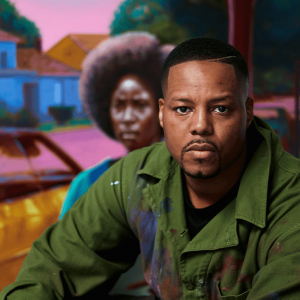
In the first few moments of Exhibiting Forgiveness, La’Ron (John Earl Jelks) is beaten after he defends a store clerk in a convenience store robbery. The violence, like most of the violence in the film, is just out of view. Soon the scene shifts and Tarrell (André Holland) wakes from a nightmare. His wife Aisha (Andra Day) reassures Tarrell that he is safe in the beautiful world they are building for themselves as artists and parents.